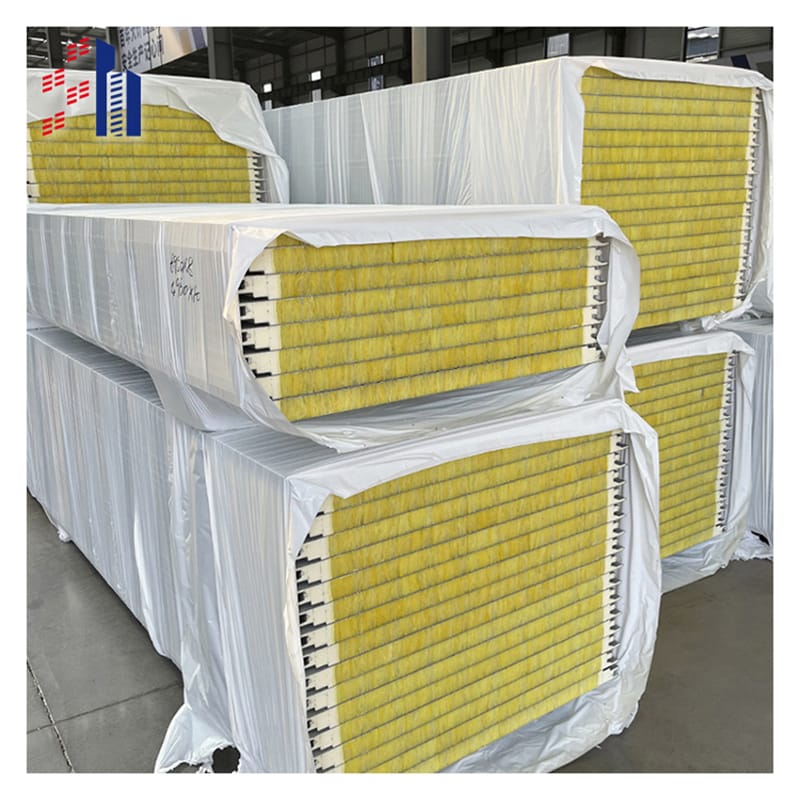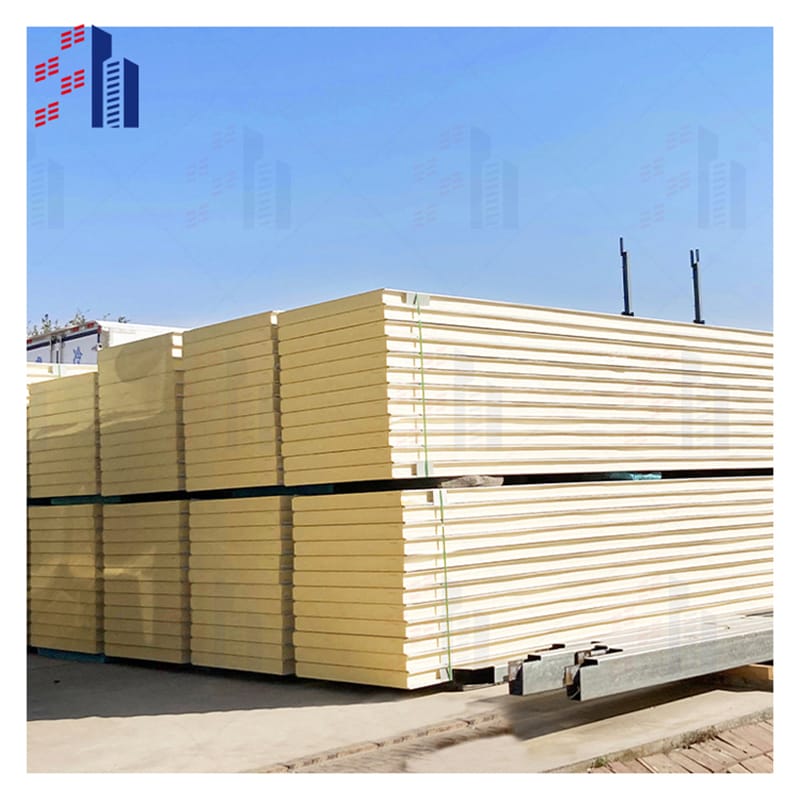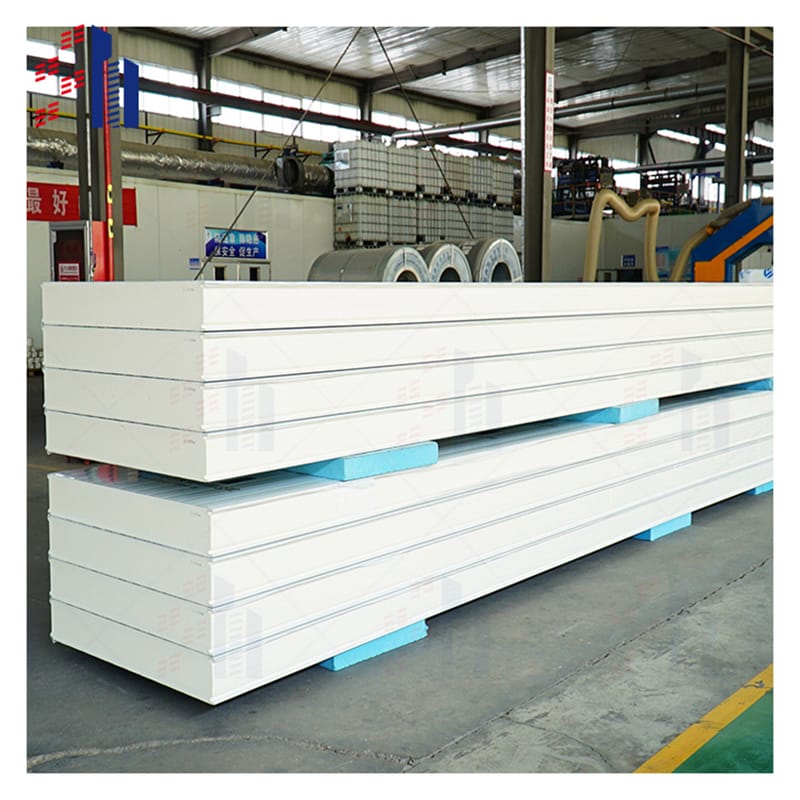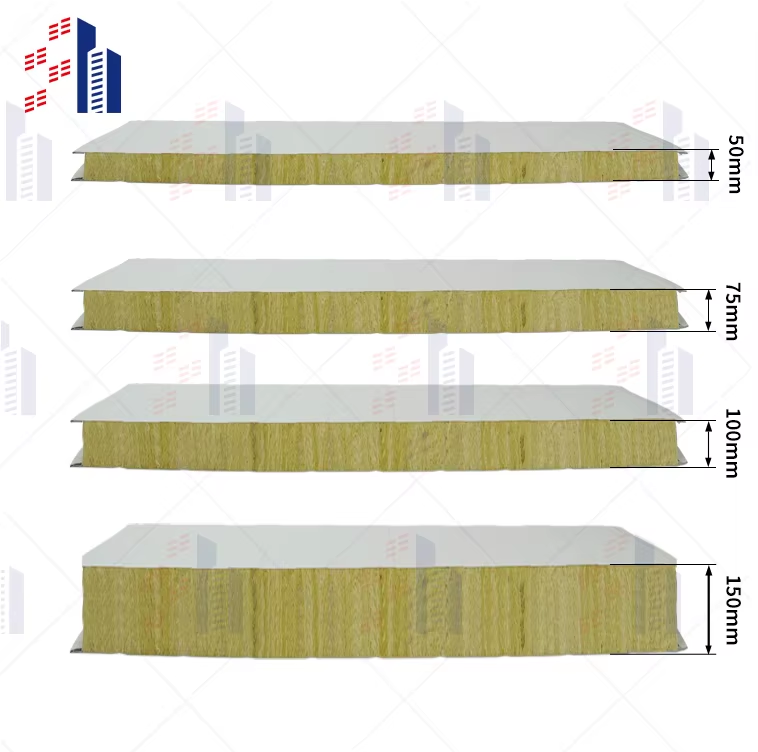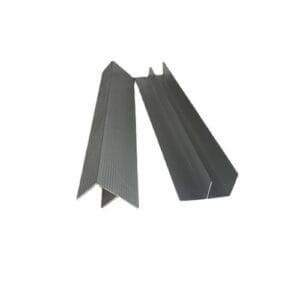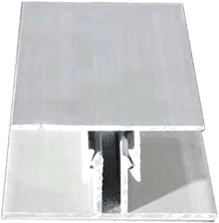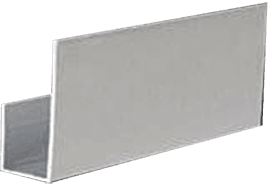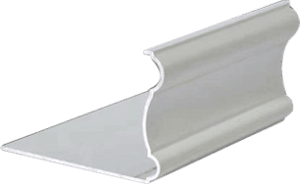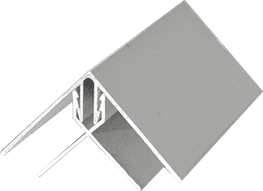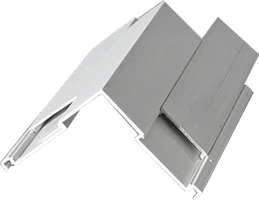Sandwich Panel Product Overview
If you’re wondering what a sandwich panel is and why it’s widely used in construction, here’s a straightforward introduction. A sandwich panels is a multi-layered building material designed for excellent insulation, durability, and structural strength. It consists of two strong outer metal facings with a lightweight, insulating core sandwiched between them.




Customers visit the factory





Installation details
Key Specifications
| Parameter | Specification | Test Standard |
| Core Material | Polyurethane (PU) foam, 40±2 kg/m³ density | ISO 845 |
| Fire Rating | A1 (Non-combustible) | EN 13501-1:2018 |
| Thermal Conductivity (λ) | 0.022 W/m·K | ISO 8301 |
| Panel Thickness | 50mm, 75mm, 100mm, 120mm (custom 30-200mm) | – |
| Skin Material | 0.4-0.7mm Galvalume steel (AZ150 coating) | ASTM A792 |
| Compressive Strength | ≥150 kPa | ISO 844 |
| Operating Temperature | -50°C to +120°C | ASTM D2126 |
| Custom Sizes | Max. length: 12m; Width: 950/1150mm (adjustable) | – |
Important attributes |
| design | the present age | After-sales service | Online Technical Support, Other |
| solution provider | Shandong, China,philippines | Nature of sales | of sales |
| Brand | SH | custom made | oem odm |
| Panel Material | polyurethane | Models | SH 150mm |
| Usage | Exterior Decoration | Product Name | foam sandwich roof panels |
| Nature of trade | factory | Minimum Order | Personalization |
| Thickness | 16MM/20MM/25MM | Color | color coated corrugated, vermillion, lime, sky blue, aquamarine, pea green or customized |
| Width | 100mm,120mm,150mm,200mm | | |
What is a Sandwich Panel
A sandwich panel is essentially a prefabricated panel used mainly for walls, roofs, and facades in commercial, industrial, and residential buildings. Its layered construction combines materials in a way that delivers superior thermal insulation and mechanical performance compared to traditional building materials.
Core Features
- Multi-layer construction: Outer metal facings bonded to an inner core material create a rigid and durable composite panel.
- Insulation properties: The core provides high resistance to heat transfer, ensuring superior thermal insulation to maintain temperature control.
- Durability: Resistant to environmental elements such as moisture, corrosion, and impact, sandwich panels offer a long service life.
- Lightweight yet strong: Balances lightness for easy handling with strength that supports structural loads effectively.
- Versatile applications: Adapted for roofing, wall cladding, cold storage, and clean rooms due to its thermal and mechanical properties.
Why Choose Sandwich Panels
This product’s multilayer design not only boosts energy efficiency by minimizing heat loss or gain but also delivers sound insulation, contributing to quieter indoor environments. Their durability makes them ideal for challenging weather conditions and demanding industrial settings.
For more detailed material options or specific product lines, check out our pages on polyurethane sandwich panels and PIR sandwich panels to find the right fit for your project.
Sandwich Panel Composition and Material Details
Understanding the composition of sandwich panels is key to choosing the right product for your project. These panels are made with a multi-layer structure designed to deliver strength, insulation, and durability.
Outer Layers Metal Facings
The outer faces of our sandwich panels are typically made from galvanized steel or aluminum. These metals provide:
- Corrosion resistance to withstand harsh weather and environmental conditions
- High strength for structural support and load bearing
- Smooth, durable surfaces that can be easily coated or painted for aesthetics and extra protection
Galvanized steel is popular for its cost-effectiveness and toughness, while aluminum offers lighter weight and superior resistance to rust, making it ideal for coastal or humid environments.
Core Material Options for Insulation
At the heart of every sandwich panel is the core insulation layer, which determines the panel’s thermal performance, fire resistance, and soundproofing:
- Polyurethane (PU): Offers excellent thermal insulation with low thermal conductivity; lightweight and widely used in commercial construction.
- Polyisocyanurate (PIR): Similar to PU but with enhanced fire resistance and better thermal efficiency; often preferred for projects needing higher fire safety.
- Rock Wool (Mineral Wool): Provides outstanding fire resistance and sound insulation; ideal for industrial or fire-sensitive applications.
- Expanded Polystyrene (EPS): Cost-effective and good for general insulation needs; lightweight with reasonable thermal performance.
These options allow you to tailor your sandwich panel’s insulation properties to your specific needs, whether it’s thermal efficiency, fire safety, or acoustic control.
Protective Coatings and Finishes
To extend the life and maintain the appearance of sandwich panels, outer metal facings are treated with various protective coatings, such as:
- Polyester coatings for UV resistance and color retention.
- PVDF (Polyvinylidene fluoride) coatings that offer superior weathering and corrosion protection.
- Anti-condensation laminates to prevent moisture build-up inside the panels.
- Fire-retardant treatments compatible with core materials to enhance overall fire safety.
These finishes help panels withstand moisture, corrosion, and harsh environmental exposure, making them reliable for long-term use in different climates across the U.S.
Selecting the right metal sandwich panel means matching both the metal facing and core material to your project’s structural, safety, and thermal needs. With options spanning from PU sandwich panels to rock wool sandwich panels, we offer versatile solutions for any industrial, commercial, or residential application.
Technical Specifications of Sandwich Panels
Our sandwich panels come with precise technical features designed to meet various building and insulation needs in the U.S. market. Here’s a clear breakdown:
Thickness Range and Dimensions
- Thickness: Panels range from 30mm up to 200mm, allowing for flexibility whether you need lightweight wall cladding or heavy-duty roofing.
- Width: Standard panel widths are typically 1,000mm to 1,200mm, customizable based on project requirements.
- Length: Panels are available in lengths up to 12 meters, tailored to reduce waste and speed installation.
- Tolerance: Dimensions maintain strict tolerances within ±2mm, ensuring consistent fitting and uniform appearance.
- Weight: Depending on thickness and core material (PU, PIR, EPS, Rock Wool), panel weight varies from 8 to 20 lbs per square foot, balancing strength with ease of handling.
Thermal Conductivity and Insulation Performance
- Thermal Conductivity (λ): Core materials provide excellent insulation with values ranging from 0.021 to 0.040 W/m·K —
- Polyurethane (PU) and PIR cores offer the lowest conductivity (around 0.021–0.025 W/m·K), maximizing energy efficiency.
- Rock Wool and EPS provide slightly higher values but still deliver strong thermal resistance.
- R-Value: Sandwich panels offer R-values typically between R-6 and R-25, depending on thickness and core type, helping meet U.S. energy codes and reducing heating/cooling costs.
Fire Resistance and Certifications
- Fire safety is critical. Our Rock Wool sandwich panels offer Class A fire resistance, with non-combustible cores resisting flames effectively.
- PU and PIR cores meet Class B or C fire ratings depending on thickness and surface treatments.
- All panels comply with relevant U.S. and international standards such as ASTM E84, UL 263, and NFPA 285 for fire performance.
- Certifications from ISO, ASTM, and CE ensure reliability, safety, and quality.
Load Bearing Capacity and Mechanical Strength
- Designed for both wall and roofing use, panels support significant structural loads:
- Compressive strength ranges from 150 to 300 psi, depending on core material.
- High tensile strength and impact resistance, particularly with metal facings (galvanized steel or aluminum).
- Panels withstand harsh weather, wind uplift, and mechanical stresses without deformation, ensuring long-term durability.
With these technical specs, our sandwich panels provide a reliable, high-performance solution suited to U.S. construction standards, combining thermal efficiency, fire safety, and structural strength in one package.
Applications of Sandwich Panels
Sandwich panels are versatile building materials widely used across different sectors thanks to their excellent insulation, durability, and lightweight nature. Here are the main areas where sandwich panels deliver outstanding performance:
Commercial and Industrial Buildings
Ideal for warehouses, factories, and office buildings, sandwich panels provide strong structural support while maintaining energy efficiency. Their multi-layered insulation helps regulate indoor temperatures, lowering HVAC costs and boosting comfort.
Cold Storage and Refrigeration
With core materials like PU (polyurethane) and PIR (polyisocyanurate) offering low thermal conductivity, sandwich panels are perfect for cold storage facilities and refrigerated warehouses. They ensure minimal heat transfer, preserving the required temperature with high energy savings and moisture resistance.
Clean Rooms and Controlled Environments
Sandwich panels are a go-to choice for clean rooms in pharmaceutical plants, laboratories, and food processing facilities. Their smooth metal facings paired with fire-resistant cores like rock wool help maintain sterile environments by controlling dust and bacteria while meeting fire safety standards.
Residential Roofing and Wall Cladding
For homes and residential projects, sandwich panels combine aesthetic flexibility with functional benefits like thermal insulation and moisture protection. They are available in various finishes and profiles to match architectural styles, making them a practical option for roofs and external walls.
Project Examples
- Cold storage warehouses in the Midwest have utilized PU sandwich panels to achieve long-term energy savings.
- A clean manufacturing facility in Texas chose rock wool sandwich panels for their non-combustible properties and sound insulation benefits.
- Commercial office buildings in California incorporated metal-faced sandwich panels for fast construction and improved building envelope efficiency.
Sandwich panels easily adapt to your project needs in terms of size, thickness, and core material, making them a solid choice for many construction and renovation applications across the United States.
Benefits and Advantages of Sandwich Panels
When it comes to insulated sandwich panels, the benefits go beyond just filling space. Here’s why these panels, whether PU sandwich panels, rock wool sandwich panels, or EPS options, are a smart choice for construction in the U.S. market.
Excellent Thermal and Acoustic Insulation
Sandwich panels offer outstanding thermal insulation, helping maintain consistent indoor temperatures and significantly reducing heating and cooling costs. The multi-layer construction, with core materials like Polyurethane (PU), Polyisocyanurate (PIR), Rock Wool, or EPS, ensures minimal heat transfer. This also means enhanced acoustic insulation, cutting down noise from outside or between rooms — a big plus for commercial buildings and residential projects alike.
Lightweight and Strong
Despite their sturdy construction, these panels are lightweight, which makes handling and transportation easier. This reduces the overall structural load on your building’s frame, allowing more flexibility in design and even cost savings in foundations and support structures. The metal facings—commonly galvanized steel or aluminum—add strength without bulk.
Energy Efficiency and Cost Savings
Using sandwich panels directly contributes to energy savings by improving building envelope efficiency. The high R-value cores minimize thermal bridging and air infiltration, which helps lower energy bills year-round. Long-term, this can translate into significant operational cost reductions.
Fast and Easy Installation
One reason these prefabricated sandwich panels are popular is how they speed up installation time. Panels come ready to use, reducing labor hours and minimizing on-site work. This not only cuts labor costs but also shortens project schedules, making them ideal for time-sensitive builds like cold storage or large industrial facilities.
Moisture and Corrosion Resistance
Thanks to protective coatings on the metal facings, sandwich panels resist moisture, rust, and corrosion. This durability is essential for buildings exposed to harsh weather, ensuring the panels keep performing and looking good for years without extra maintenance.
Fire Safety Compliance
Different core materials offer varying fire resistance levels. For example:
- Rock wool sandwich panels provide excellent fire protection thanks to their non-combustible core.
- PU and PIR panels meet high fire safety standards approved for many commercial and industrial projects.
This flexibility helps meet local building codes and safety regulations, giving peace of mind whether you’re working on a clean room or residential roofing.
of Key Benefits
- Superior thermal and sound insulation
- Lightweight yet structurally strong
- Energy efficient, reducing operational costs
- Quick and labor-saving installation
- Resistant to moisture and corrosion
- Meets fire safety standards depending on core type
Choosing the right sandwich panel means balancing these benefits with your project’s specific needs, ensuring a smart investment in durability and performance.
Customization and Options for Sandwich Panels
When choosing sandwich panels for your project, flexibility is key. We offer a wide variety of colors and finishes to match your building’s aesthetic and functional needs. Whether you want classic solid tones or textured surfaces, you can select coatings that enhance appearance and protect against weather and corrosion.
Custom Sizes and Panel Profiles
Our panels can be tailored in custom sizes to fit exact dimensions, helping minimize waste and speed up installation. Panels come in different profiles, including:
- Flat panels for sleek, modern walls and roofs
- Corrugated panels that add strength and a distinct look
- Special profiles designed for specific architectural or industrial uses
This versatility ensures that your wall and roof sandwich panels fit perfectly into your project design without compromise.
Thickness and Core Material Choices
We understand that every project has unique insulation and performance needs. That’s why our sandwich panels come in thickness options ranging from 30mm to 200mm. Based on your requirements, you can select from core materials like:
- Polyurethane (PU) for superior thermal insulation
- Polyisocyanurate (PIR) which offers enhanced fire resistance
- Rock Wool for excellent fire protection and sound insulation
- Expanded Polystyrene (EPS) for cost-effective thermal solutions
These options allow you to balance energy efficiency, fire safety, and budget priorities to get the best-performing panels for your building.
For example, if fire resistance is a priority, a rock wool sandwich panel may fit best. For cold storage or clean rooms, PU sandwich panels deliver top-notch insulation. You can explore more about these options on our Polyurethane Sandwich Panels and EPS Sandwich Panels pages.
By selecting the right combination of color, profile, thickness, and core material, you gain a tailored sandwich panel solution that fits your project’s exact needs — improving efficiency, durability, and appearance all at once.
Installation and Maintenance of Sandwich Panels
Installation Guidelines for Sandwich Panels
Installing sandwich panels, whether for roofing or wall cladding, is straightforward but requires attention to detail to ensure proper performance:
- Prepare the surface: Make sure supporting structures like steel frames or beams are clean, level, and secure.
- Panel alignment: Start installation from the bottom corner and work your way up to ensure panels lock tightly.
- Use appropriate fasteners: Select screws or rivets compatible with the panel’s metal facings, typically galvanized steel or aluminum.
- Seal the joints: Apply approved sealants and foam tapes between panels to maintain insulation and weatherproofing.
- Avoid panel damage: Handle with care to prevent dents or scratches, which can compromise protective coatings and longevity.
- Follow manufacturer instructions: Each type of core material (PU, PIR, rock wool, EPS) can have specific installation requirements.
- Watch installation videos: For quick visual guidance, many suppliers provide step-by-step videos or detailed manuals online.
Maintenance Tips to Extend Panel Lifespan
Proper care helps keep your insulated sandwich panels in top shape and prolongs their useful life. Here’s how to maintain them:
- Regular cleaning: Use mild detergent and water; avoid harsh chemicals that can damage coatings.
- Inspect for damage: Periodically check for dents, loose fasteners, or moisture ingress, especially after storms.
- Check seals and joints: Reapply sealants if cracks or gaps appear to prevent water penetration.
- Prevent corrosion: Ensure metal facings remain intact and promptly address any scratches or exposed metal.
- Avoid heavy impacts: Keep heavy equipment or sharp objects away from panels to prevent deformation.
- Maintain proper ventilation: Prevent condensation buildup inside panels by ensuring good airflow in enclosed spaces.
- Schedule professional inspections: For commercial or industrial uses, planned check-ups by experts can detect hidden issues early.
Following these installation and maintenance steps guarantees your sandwich panels deliver their best insulation, durability, and performance for years to come.
Certifications and Standards for Sandwich Panels
When selecting sandwich panels for your construction projects, it’s crucial to consider products that meet recognized industry certifications and comply with environmental and safety standards. This ensures not only quality and performance but also peace of mind in meeting U.S. building codes and regulations.
Industry Certifications
Our sandwich panels are designed and manufactured in line with key international and U.S. standards, including:
- ISO Certification: Guarantees consistent production quality and reliable manufacturing processes.
- ASTM Standards: Covers performance criteria such as thermal insulation (ASTM C518), fire resistance (ASTM E84), and mechanical strength to suit structural needs.
- CE Marking: For products intended for export or use in jurisdictions requiring compliance with European standards, ensuring safety, health, and environmental protection.
These certifications confirm that metal sandwich panels, PU sandwich panels, PIR sandwich panels, and rock wool sandwich panels meet rigorous benchmarks for durability, insulation, and fire safety properties.
Environmental and Safety Compliance
- Fire Resistance Classification: Our sandwich panels are available in various cores, like rock wool or PIR, offering enhanced fire ratings to meet fire safety codes applicable across commercial and industrial settings.
- Thermal Performance Certifications: Panels tested for high R-values reduce energy consumption, helping buildings meet energy efficiency regulations and green building practices.
- Environmental Standards: Materials used comply with regulations limiting volatile organic compounds (VOCs) and hazardous substances, supporting sustainable building initiatives.
- Corrosion and Moisture Resistance: Protective coatings on metal facings ensure long-lasting performance, vital for humid climates or cold storage applications.
Why It Matters
Choosing sandwich panels with verified certifications ensures:
- Compliance with U.S. building codes and inspection standards.
- Reliable thermal insulation and fire safety for safer, energy-efficient buildings.
- Long-lasting structural integrity supported by tested mechanical properties.
For detailed technical specifications and certified panel options, explore our ranges of polyurethane sandwich panels and EPS sandwich panels.
By prioritizing certified sandwich panels, you protect your investment and future-proof your project against evolving safety and efficiency demands.
Ordering Sandwich Panels Pricing and Options
How to Request a Quote or Order Samples
To get started with ordering insulated sandwich panels, simply reach out via our website contact form or call our sales team directly. Provide your project details including:
- Panel type (PU, PIR, Rock Wool, EPS)
- Desired thickness and dimensions
- Quantity needed
- Any special finishes or customization
We also offer free or low-cost samples so you can check material quality before making a larger order. Samples help you evaluate the panel’s look, feel, and insulation performance.
Minimum Order Quantities and Lead Times
- Minimum order quantity (MOQ) usually starts at 100 panels, but this may vary based on the panel type and customization.
- Typical lead time ranges from 2 to 4 weeks depending on panel specifications and order volume.
- Bulk orders or custom sizes might require longer production times, so we recommend confirming timelines early.
Shipping and Delivery Information
- We offer nationwide shipping across the United States with reliable carriers experienced in handling large construction materials.
- Panels are securely packaged to prevent damage during transport.
- Delivery times depend on your location and order size; estimated shipping dates are provided at order confirmation.
- For large projects, we provide options for scheduled deliveries to match your construction timeline.
Ordering insulated sandwich panels with us means clear communication on pricing, quantities, and delivery expectations to ensure your project stays on track without surprises.
About Shanghe Brand Sandwich Panels
Shanghe is a trusted name in the sandwich panel market, known for combining solid manufacturing expertise with consistent quality. With years of experience producing insulated sandwich panels for a variety of uses, Shanghe delivers products that meet the high standards of the US construction industry.
Manufacturing Expertise and Quality Assurance
Shanghe’s advanced facilities use state-of-the-art technology to produce PU sandwich panels, PIR sandwich panels, rock wool sandwich panels, and EPS sandwich panels with precise control over materials and finishing. Every panel undergoes strict quality checks to ensure reliable thermal insulation, fire resistance, and structural strength.
Customer Service and Support
We prioritize clear communication and responsive support throughout your ordering and installation process. Our team is ready to assist with:
- Product selection based on your project needs
- Technical guidance for installation and maintenance
- Quick responses to any product questions or concerns
Warranty and After Sales Service
Shanghe backs its metal sandwich panels with a solid warranty that covers structural and material defects. Our after-sales service includes:
- Limited warranty period typically covering 10-20 years depending on the product type
- Professional advice on handling, storage, and care to maximize panel lifespan
- Support for replacement parts or solutions in case of unforeseen issues
With Shanghe, you’re choosing a brand that stands behind its prefabricated sandwich panels—ensuring peace of mind alongside superior performance and energy savings on your building projects.
Frequently Asked Questions about Sandwich Panels
What are sandwich panels used for
Sandwich panels are mainly used for roofing, wall cladding, and insulation in commercial, industrial, and residential buildings. They’re ideal for cold storage, clean rooms, and prefabricated structures where strong thermal insulation and durability are required.
What core materials are available in insulated sandwich panels
Common core materials include Polyurethane (PU), Polyisocyanurate (PIR), Rock Wool, and Expanded Polystyrene (EPS). Each offers different insulation levels, fire resistance, and moisture protection. Select the core based on your project’s thermal and safety needs.
How thick can sandwich panels be
Thickness ranges from 30mm up to 200mm or more, depending on insulation requirements and load-bearing needs. Thicker cores improve thermal resistance (R-value) but add weight and cost.
Are sandwich panels fire resistant
Fire resistance depends on the core material:
- Rock Wool sandwich panels offer high fire resistance and are non-combustible.
- PIR panels have good fire ratings but vary by certification.
- PU and EPS panels generally have lower fire resistance but can meet flame retardant standards with specific formulations.
Can I install sandwich panels myself
Yes, installation is relatively straightforward and designed for quick assembly. However, it’s recommended to follow manufacturer guidelines or hire professionals to ensure proper sealing and fastening for durability and insulation performance.
How durable are sandwich panels
Sandwich panels are highly durable with good resistance to weather, moisture, and corrosion, especially when metal facings are galvanized or coated. Proper maintenance extends lifespan and keeps insulation and fire safety intact.
How to maintain sandwich panels
- Clean panels regularly to prevent dirt buildup.
- Inspect seals and joints for damage or leaks.
- Recoat metal surfaces if protective finishes show wear.
- Address any dents or impacts promptly to avoid moisture intrusion.
What are the weight considerations for metal sandwich panels
Panels are lightweight compared to traditional insulation materials, reducing structural load and cutting installation labor time. Weight varies by thickness and material but generally ranges from 8 to 15 pounds per square foot.
Do sandwich panels offer sound insulation
Yes, they provide excellent acoustic insulation, especially panels with Rock Wool cores, which dampen noise effectively in industrial and urban environments.
Are custom sizes and finishes available
Most manufacturers offer custom dimensions, colors, and panel profiles (flat or corrugated) to fit specific design and functional requirements. This flexibility suits diverse architectural needs and project scales.
What certifications do sandwich panels comply with
Look for ISO, ASTM, CE, and specific fire and environmental certifications to ensure panels meet U.S. building codes and safety standards. Certified panels guarantee reliable thermal performance and safety compliance.
If you have more questions about choosing or using sandwich panels, feel free to reach out to us. We’re here to help you find the best solution for your project.
Related Products and Accessories for Sandwich Panels
To get the most out of sandwich panels, having the right accessories and complementary products is essential. These items ensure a smooth installation process and enhance the overall performance and durability of your insulated sandwich panels.
Panel Accessories
Joints and Connectors
Designed to firmly link sandwich panels, joints help maintain structural integrity and ensure airtight seals. Available in various profiles such as flat, corrugated, or custom shapes to match your panel choice.
Fasteners
High-quality screws, bolts, and clips made from corrosion-resistant materials like stainless steel or galvanized steel. Fasteners secure panels to frames while withstanding weather exposure and structural loads.
Sealants and Gaskets
Sealants provide a moisture-tight barrier, preventing water infiltration and air leaks. Gaskets made of EPDM rubber or similar materials improve insulation by sealing panel edges and joints firmly.
Complementary Products
Edge Trims and Flashings
Protect exposed panel edges, create clean finishing lines, and enhance weather resistance around doors, windows, and roof edges.
Insulation Tapes and Vapor Barriers
Used in conjunction with sandwich panels to boost thermal insulation and prevent condensation, especially in cold storage or clean room environments.
Structural Supports and Frames
Metal frameworks compatible with sandwich panels, ensuring proper load distribution and stability for walls and roofing systems.
Why Use Related Products with Sandwich Panels

